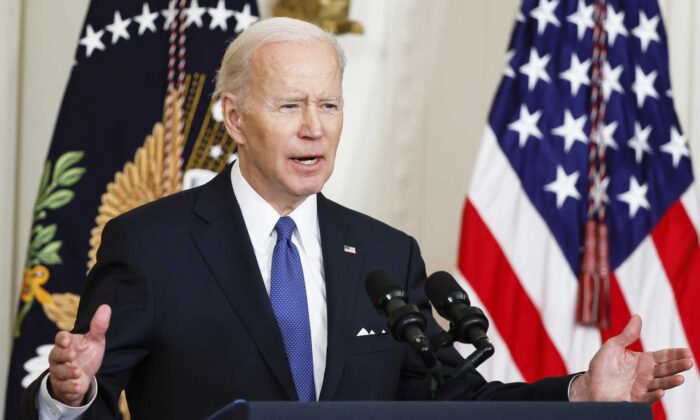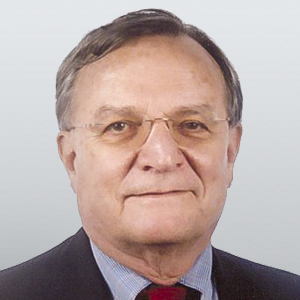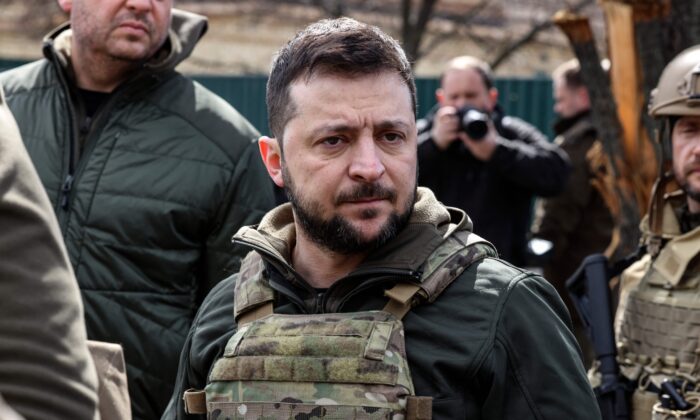Saturday, April 30, 2022
Friday, April 29, 2022
Thursday, April 28, 2022
Wednesday, April 27, 2022
Profecia Sobre USA
Sunday, April 24, 2022
Friday, April 22, 2022
Thursday, April 21, 2022
Tuesday, April 19, 2022
Monday, April 18, 2022
Sunday, April 17, 2022
Friday, April 15, 2022
Thursday, April 14, 2022
From the wisdom of Corrie ten Boom’s father
“I have many things to say unto you, but you cannot bear it now.”-John 16:12- “Whosoever shall offend one of these little ones, it would be better that a millstone where hung about their necks and they were drowned in the depths of the sea.” –Luke 17.2-
Tuesday, April 12, 2022
Monday, April 11, 2022
Saturday, April 9, 2022
Friday, April 8, 2022
Como Rockefeller fundou a medicina moderna e matou as curas naturais
Hoje em dia as pessoas olham para você como um “esquisitão” se você fala sobre as propriedades curativas das plantas ou de quaisquer outras práticas holísticas. Semelhante a várias outras coisas, há muita política e dinheiro por trás do nosso moderno sistema médico.
Tudo começou com John D. Rockefeller (1839 – 1937), um magnata do petróleo e o primeiro bilionário dos Estados Unidos.
Na virada do século 20 ele controlava 90% de todas as refinarias de petróleo nos EUA através de sua empresa de petróleo, a Standard Oil. Mais tarde ela foi dividida para se tornar Chevron, Exxon, Mobil etc.

Esta foi uma oportunidade maravilhosa para Rockefeller, que viu a capacidade de monopolizar o petróleo, a química e a indústria médica ao mesmo tempo!
Para ele, a melhor coisa sobre produtos petroquímicos era que tudo poderia ser patenteado e vendido, gerando altos lucros.
Mas havia um problema com o plano de Rockefeller para a indústria médica: medicamentos naturais/fitoterápicos eram muito populares na América naquela época. Quase metade dos médicos e faculdades de medicina dos EUA praticavam medicina holística, usando conhecimentos da Europa e dos nativos americanos.
Rockefeller, o monopolista, teve que descobrir uma maneira de aniquilar sua maior competição. Então, ele usou a estratégia clássica de “solução de reação ao problema”. Isto é, criar um problema, assustar as pessoas e depois oferecer uma solução (pré-planejada).
Buscando atingir o objetivo, Rockfeller visitou seu amigo Andrew Carnegie (outro plutocrata que ganhou dinheiro com o monopólio da indústria siderúrgica) e juntos bolaram um plano. Da prestigiosa Carnegie Foundation, eles enviaram um homem chamado Abraham Flexner para viajar pelo país e informar sobre o status das faculdades de medicina e hospitais em todo o país.
Isso levou ao Relatório Flexner, que deu origem à medicina moderna como a conhecemos.
Este relatório tratou da necessidade de renovar e centralizar as instituições médicas norte americanas. Com base neste relatório, mais da metade de todas as faculdades de medicina foram fechadas em curto período de tempo.
A homeopatia e os remédios naturais foram ridicularizados e os médicos foram presos.
Para ajudar na transição e mudar as mentes de outros médicos e cientistas, Rockefeller doou mais de US $ 100 milhões para faculdades, hospitais e fundou um grupo de fachada filantrópico chamado “General Education Board” (GEB).
Em muito pouco tempo, as faculdades de medicina foram todas simplificadas e homogeneizadas. Todos os estudantes estavam aprendendo as mesmas coisas e a medicina passou a ser baseada no uso de drogas patenteadas.
Os cientistas receberam grandes doações para estudar como as plantas curavam doenças, mas o real objetivo era identificar quais elementos químicos da planta eram eficazes e depois recriar um produto químico similar – mas não idêntico – no laboratório que poderia ser patenteado.
Uma pílula para um doente tornou-se o mantra da medicina moderna! (grifo nosso).
Então, agora, 100 anos depois, como resultado disso tudo, estamos produzindo médicos que nada sabem sobre os benefícios da nutrição, ervas ou práticas holísticas. Temos uma sociedade inteira que, na busca do seu bem estar, é escravizada pelas grandes corporações.
Os Estados Unidos por exemplo, gastam 15% do seu PIB em saúde, ou melhor, em doença. Digo isso pois o tratamento convencional não está focado na cura dos pacientes, mas normalmente no alivio dos sintomas, gerando assim clientes fiéis (o que é conhecido como “tratamento com foco na doença”).
Por que haveria curas reais? Este é um sistema fundado por oligarcas e plutocratas, não por médicos! (grifo nosso).
Quanto ao câncer, saibam que a American Cancer Society foi fundada por ninguém menos que Rockefeller, em 1913.
Autor: Chris Kanthan – Tradução livre por Dr. Victor Paviani
Who is a Hero?
By Christina, Taiwan
Chesley “Sully” Sullenberger, a devoted Christian, was the captain of Flight 1549. When this Airbus A320 took, off everything was fine until the plane struck a flock of 248 birds. Some of the birds were sucked into the engines, causing both engines to fail. As the plane was losing altitude, Sully and his copilot Jeff Skiles had only seconds to make a decisive decision to save all 155 passengers on board, including a baby.
They concluded they wouldn’t be able to make it in time to land at any airport, and they decided to try crash landing on the Hudson River! It was a scary endeavor, but with their skills and the cooperation of all the crew members and passengers on board, Sully landed the plane safely. Still, they were far from safety, as it was freezing weather. Blocks of ice had been spotted in the river the day before. Though all the passengers had made it outside of the plane, without immediate rescue, they could freeze to death in a few minutes.
God was with them, and two New York Waterway ferries were nearby. Captain Vincent Peter Lombardi of one of these vessels, a devoted Catholic, came to their rescue within minutes! They had also made a call for help to other vessels and the fire department. In the end, all 155 passengers survived the ordeal!
After this incident, Sully was hailed as a hero. However, Sully has commented, “We all have heard about ordinary people who find themselves in extraordinary situations. They act courageously or responsibly, and their efforts are described as if they opted to act that way on the spur of the moment... I believe many people in those situations actually have made those decisions years before.”1
He told CBS News, “One way of looking at this might be that, for 42 years, I’ve been making small regular deposits in this bank of experience, education, and training, and on January 15, the balance was sufficient so that I could make a very large withdrawal.”
Jesus has admonished His followers to do the same with life. “He that is faithful in that which is least is faithful also in much” (Luke 16:10). “His lord said unto him, Well done, good and faithful servant; thou hast been faithful over a few things, I will make thee ruler over many things: enter thou into the joy of thy lord” (Matthew 25:23).
It behooves me to take the Lord’s training in my life diligently. If I learn how to make correct decisions according to His will moment by moment, perhaps with all the experience I’ve gathered, one day in an emergency, I’ll be able to make a large withdrawal as well.
Since a plane was lost, Sully and Jeff had to endure months of investigation and criticism from some as to whether his action was necessary and the best decision. In the end he was vindicated, thank God! The crew members, the passengers, and Sully have experienced post-traumatic stress disorder (PTSD), but by and by they’ve been able to get back to normal life. Due to Sully’s humility and sacrificial spirit in saving 155 lives, he has received numerous honors, and he was appointed to be US Ambassador to the International Civil Aviation Organization (ICAO) in 2021.
In the movie about the incident, when he was asked if he’s a hero, Sully answered, “It wasn’t just me, it was all of us. Jeff, Donna, Sheila, Doreen (plane crew members). The passengers, rescue workers. Air traffic control, ferry boat crews and scuba cops. We all did it. We survived.”2
This also is an example of other biblical counsel: “Finally, all of you, be like-minded, be sympathetic, love one another, be compassionate and humble” (1 Peter 3:8). “Two are better than one, because they have a good return for their labor: If either of them falls down, one can help the other up” (Ecclesiastes 4:9–10). During this life-and-death emergency, it was only when they all worked together, with God’s help, that they were rescued.
We have all felt the weight of the pandemic the last few years, and God knows what more world events are awaiting us. But if we rely on God, establish a personal link with Him, obey His leading, are faithful in the lessons He’s teaching us, and cooperate with other like-minded people, the Lord will help us through any difficulties we’re facing till we reach our heavenly destination. God bless and keep you!
Thursday, April 7, 2022
Does America Really Think They Can Force Regime Change in Russia?
It’s Worse Than a Gaffe If There’s Method to His Madness
Commentary
“At what point does Joe Biden’s verbal incontinence start to become a mortal threat to Americans?” asks Gerard Baker in The Wall Street Journal—a purely rhetorical question meant to be understood as signifying that it is at this point—the point of calling for régime change in Russia, as Biden did last weekend—that he becomes a mortal threat to Americans.
Stephen Green of PJ Media, better known as VodkaPundit, put it more succinctly: “Big Mouth Biden Talks His Way into World War III.”
After noting the advice of Sun Tzu to generals in prospect of victory to “build your opponent a golden bridge to retreat across,” Green draws a telling contrast with General Biden’s insistence that the Russian president, Vladimir Putin must step down—and presumably submit himself to be tried for the war crimes our President also claims he is guilty of.
Yeah, that will work.
This would be the same Vladimir Putin whose finger, for so long as he remains in the office he currently holds, is on the button that will, if he chooses, launch thousands of nuclear warheads—not at Ukraine, but at us.
You talk about “war crimes,” quoth Vlad. “I’ll give you war crimes.”
Instead of Sun Tzu’s golden bridge to peace, writes the VodkaPundit, “Biden has backed him into a corner and dared him to lash out. That’s the idiot’s way to start World War III, but from Joe Biden, what else did you expect?”
What indeed! Yet the remarkable thing is that the president’s media supporters as well as his detractors appear to see only what they expect to see in his words, however maladroit. Where the latter see an idiot’s catastrophic blunder, the former see at worst the sign of highly creditable moral feelings and at best a foreign policy genius’s master-stroke.
It was former Secretary of Defense and CIA director Leon Panetta who put the gaffe down to the president’s warm heart, saying “he’s Irish [and] really has a great deal of compassion when he sees that people are suffering. And I think it overwhelmed him in the sense of seeing all of the horrors that were resulting from this war.”
But this was faint praise compared with that of Eugene Robinson of The Washington Post, who wrote that “Biden’s Putin ad lib wasn’t a gaffe. He was right.” Or Alan Katz of Newsweek
“This Is Joe Biden’s Finest Moment”—an opinion apparently shared by David Rothkopf of The Daily Beast, who thought that the speech bore comparison to Winston Churchill’s “Iron Curtain” speech at Fulton, Missouri, in 1946.
Not surprisingly, Joe himself favors this view over that of the VodkaPundit. “I was expressing the moral outrage that I feel, and I make no apologies for it,” he said. “It’s ridiculous,” he added. “Nobody believes I was talking about taking down Putin. Nobody believes that.”
Oddly enough, this is almost true, since nobody believes anything he says. Except that, in this case, some people do believe him, albeit only with supporting evidence. One such is the historian Niall Ferguson, who writes for Bloomberg and who claims to have heard from “a senior administration official” at a private event that “The only end-game now is the end of Putin [sic] regime.”
The administration’s thinking, according to Ferguson, appears to be that Putin and his “régime” can be brought down by a carefully judged supply of sophisticated weaponry to Ukraine by the United States and Europe—not so much as to provoke a direct Russian retaliation but just enough to keep Russian troops bogged down in an unwinnable “quagmire,” like Afghanistan, perhaps for years.
Presumably, some discontented generals or other Kremlin officials will eventually get tired of living in “a pariah state that will never be welcomed back into the community of nations” and will then “take down” the man who got them into another forever war—which will also, according to Ferguson’s “senior administration official,” put an end to the Sino-Russian alliance.
What’s not to like?
This is also the administration’s thinking in the opinion of Curt Mills of The American Conservative, who writes that “the fascinating thing about this strategy is the way it combines cynicism and optimism. It is, when you come to think of it, archetypal Realpolitik to allow the carnage in Ukraine to continue; to sit back and watch the heroic Ukrainians ‘bleed Russia dry’; to think of the conflict as a mere sub-plot in Cold War II, a struggle in which China is our real opponent.”
What could go wrong?
Leave aside for the moment the appalling cynicism of prolonging Ukraine’s suffering to achieve America’s foreign policy aims. Even Biden’s celebrated Irish compassion for suffering must see that it won’t be only the Russians who are “bled dry.”
Even if it were, even if we could be confident in the administration’s judgment of exactly how much provocation Putin is prepared to endure before he launches his nukes, how can we believe that this strategy has been designed in such complete disregard of the old military maxim that “the enemy gets a vote”?
In other words, Putin may not be content either to stay in this quagmire of America’s devising and be bled dry or quietly to withdraw into his own “pariah state” to await the inevitable coup d’état. He does have other options, and I don’t think we’re going to like any of them.
It begins to look as if, whatever view we take of the sincerity of the Biden “gaffe” itself, it’s still more likely to be what VodkaPundit calls “the idiot’s way to start World War III” than it is to be for the good either of Ukraine or of the United States.
Views expressed in this article are the opinions of the author and do not necessarily reflect the views of The Epoch Times.
Wednesday, April 6, 2022
Desinformação e perfídia, é o que temos na comunicação social
Bucha: massacre ou provocação. Onde pára a verdade?
4 DE ABRIL DE 2022
António Guterres já apelou a uma «investigação independente», enquanto a Rússia «rejeita as acusações de massacre de civis» e pretende reunir o Conselho de Segurança da ONU para debater a questão.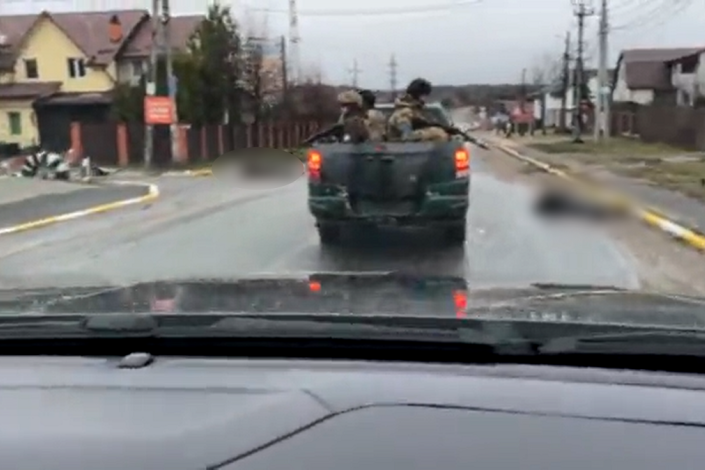
Créditos/ telegra.ph
As imagens que proliferam nas televisões e nas redes sociais, a propósito de um alegado massacre de civis na cidade ucraniana de Bucha serviram, antes de qualquer investigação séria, conforme reclama o secretário-geral da ONU, para condenar o Exército russo, que rejeita «julgamentos sumários» e fala de factos que não corroboram a versão dos responsáveis ucranianos.
Conforme escreve Carmo Afonso esta segunda-feira no jornal Público, é difícil distinguir a informação que as máquinas de propaganda põem a circular da que nos «chega através do verdadeiro trabalho jornalístico», mas é um erro pensar-se que «ninguém aceita ser informado pela propaganda de guerra».
A articulista sublinha ainda a ideia de que «algumas pessoas querem precisamente receber informação que corrobore na íntegra a sua interpretação da guerra. Aplaudem quem noticia factos que dêem razão ao que têm vindo a dizer. Têm pouca, ou nenhuma, margem para dar atenção ao que contradiz, ou que julgam contradizer, essa interpretação».
Daí que, independentemente das restrições impostas a informações contrárias ao pensamento único oficial e, não sendo a denúncia da guerra e das suas atrocidades incompatível com a necessidade de procurar conhecer a realidade dos factos, nos debruçámos sobre o artigo publicado pelo major-general Raul Cunha, a propósito das imagens de um vídeo sobre os alegados massacres em Bucha.
No referido artigo, questiona-se, por um lado, o facto de todos os corpos estarem «na mesma rua e só numa área de algumas centenas de metros», enquanto «a maioria das casas está intacta» e sem «marcas de tiros». Por outro, chama-se a atenção para o facto de que «as viaturas só se desviam dos corpos e os militares ucranianos não mostram qualquer emoção, nem sequer se apressam a verificar se há alguém ainda vivo», para além de haver «um momento em que um dos cadáveres move a mão, ouve-se o militar ucraniano a comentar esse facto e ninguém lhe dá importância».
Este militar, que observou noutros teatro de guerra «situações idênticas», refere ainda que as tropas russas terão deixado Bucha «alguns dias antes de serem descobertas as "vítimas da ocupação" sem que as Forças Armadas da Ucrânia tivessem dado «conta disso imediatamente» e, por isso, terem bombardeado com artilharia aquela cidade «durante quase três dias», cujo resultado pode ter sido a morte daqueles civis, «mas nunca naqueles locais e naquele formato». Considera ainda que «os corpos foram levados e dispostos, mas os produtores do "cenário" tiveram preguiça de os colocar em lugares diferentes ou dentro de pátios e assim poderão ser facilmente desmascarados, desde que haja a determinação de fazer os necessários exames com imparcialidade e seriedade».
Não será difícil verificar esta realidade, segundo o major-general Raul Cunha, bastando para tal «providenciar de imediato» a realização de «exames para determinar a hora da morte» das vítimas, para depois «correlacionar esses dados com os do controlo objectivo e real da OTAN por meio de imagens de satélite, os quais indicarão com precisão a data da saída das tropas russas».
Eis mais um contributo para procurar esclarecer a verdade e evitar, como escreve Carmo Afonso, que a uma guerra que já «fez muitas vítimas não se deve permitir que faça mais uma: a verdade».
https://www.abrilabril.pt/internacional/bucha-massacre-ou-provocacao-onde-para-verdade
– Bucha, operação de false flag montada pelos serviços secretos ocidentais
Major-General Raúl Cunha

Esta manhã, um amigo publicou um vídeo de Bucha, uma cidade perto de Kiev, com a seguinte
Não lhe perguntei como é que, nesse vídeo, todos os corpos estavam deitados na estrada e à beira da
Mas também se pode interrogar mais. Como aconteceu que todos os corpos jaziam na mesma rua e só
Foi algum tipo de coluna civil que a artilharia atingiu? Mas, no entanto, no vídeo, a maioria das casas
Uma coluna de civis foi baleada? Mas as casas não têm nenhumas marcas de tiros. Além disso, alguns cadáveres têm as mãos amarradas nas costas. E qual foi o motivo? Porque os russos são maus e só sabem
Se repararmos, no vídeo, as viaturas só se desviam dos corpos e os militares ucranianos não mostram qualquer emoção, nem sequer se apressam a verificar se há alguém ainda vivo, o que indicia que sabem
Vamos ser sérios e ter objectividade. No caso de ser um vídeo original, NÃO haveria um momento em
Mais ainda, a verdade é que as tropas russas deixaram Bucha como parte de uma manobra de
Quando as forças ucranianas finalmente perceberam que os russos já lá não estavam, como sempre,
Só que, (e este pormenor é que evidencia a total falsidade e a perfídia das alegações de ter havido um massacre) o estado desses corpos sugere que eles foram mortos muito recentemente (menos de 24 horas), ou seja, ontem, o mais tardar. Ora, os cadáveres depois de vários dias deitados na rua ficam com um aspecto muito diferente da imagem que é apresentada, (e eu sei porque infelizmente já tive de observar outras situações idênticas) e os russos há mais de três dias que deixaram aquele local. A central de
Estas alegações, através de um vídeo e fotos muito publicitadas nas redes sociais, são mais uma produção vil, pensada para agitar as emoções de pessoas que nunca viram guerra ou cadáveres e, sobretudo, para retirar da atenção do público os mais que evidentes crimes dos extremistas ucranianos que começavam a ser impossíveis de esconder.
Obviamente, os corpos foram levados e dispostos, mas os produtores do “cenário” tiveram preguiça de os colocar em lugares diferentes ou dentro de pátios e assim poderão ser facilmente desmascarados, desde
Estou quase certo que uma posterior análise ainda vai acabar por revelar que são civis russos acusados de colaboracionismo ou PGs russos vestidos à civil, trazidos das prisões dos extremistas ucranianos, pois
É claro que estes argumentos dificilmente serão considerados por gente miserável como o presidente da União Europeia, Charles Michel, que logo lançou um hashtag “massacre de Bucha” e anunciou novas
Porém, não será difícil verificar o que acima está escrito. Bastará providenciar de imediato para que sejam feitos exames para determinar a hora da morte daqueles desgraçados. E depois correlacionar esses dados
Mas isso só será feito se a Ucrânia e os países ocidentais que a apoiam, procurarem a verdade. E, infelizmente, sabemos bem que, nesta altura, desejam tudo menos isso.
https://resistir.info/ucrania/bucha_false_flag.html /Abril/2022
Do mesmo autor: · "Quem brincou à roleta russa com Putin é um dos grandes culpados"
Ver também: · El Reino Unido no aprueba celebrar una reunión del Consejo de Seguridad de la ONU sobre la situación en Bucha, declara la Cancillería rusa
O original encontra-se em estatuadesal.com/2022/04/03/desinformacao-e-perfidia-e-o-que-temos-na-comunicacao-social/
Este artigo encontra-se em resistir.info
Dennis Edwards: O que foi notado pelos russos é que nessas fotos você costuma ver os mortos
amarrados com as mãos por um lenço branco. Os soldados ucranianos usam o lenço azul, enquanto
a Cruz Vermelha usa um lenço amarelo e os russos usam um lenço branco. Os russos afirmam que
estes eram, sem dúvida, simpatizantes russos capturados e mortos quando os ucranianos voltaram
para a cidade. Além disso, eles observam que os corpos teriam sido mais decompostos se tivesse
acontecido enquanto os russos estavam lá. As vítimas pareciam ter sido mortas recentemente. É
difícil para nós saber qual lado está dizendo a verdade. Na guerra, geralmente, o lado que vence
conta sua história. A verdade é a primeira vítima da guerra. Rezemos pela paz e não apoiemos a
guerra. Guerra é inferno. É a desumanidade do homem para com o homem. Que Deus nos ajude.
Que o Príncipe da Paz retorne e pare as guerras. Em nome de Jesus oramos.
Tuesday, April 5, 2022
Russian Foreign Minister Denies Atrocity Claims
Footage in Ukrainian city of
Bucha 'fake news attack' on Russia, 'provocation': Lavrov
Russian
foreign minister says video with allegedly slain civilians appeared only days
after withdrawal of Russian military
Elena Teslova |04.04.2022
The footage of dead civilians left behind after the Russian pullout from the
Ukrainian city of Bucha constitutes a “fake news attack,” Moscow argued on
Monday.
The footage of slain civilians was staged, Foreign Minister Sergey Lavrov said
during a meeting with UN Deputy Secretary General for Humanitarian Affairs
Martin Griffiths.
"The other day, another fake attack was mounted in the city of Bucha in
the Kyiv region after the Russian military left it in accordance with plans and
achieved agreements.
"Several days later, a staged setting was organized there, which is now
being promoted through all channels and social networks by Ukraine's
representatives and their Western patrons," he said.
The Russian military left the city on March 30, and on March 31 the city's
mayor solemnly announced that everything was all right, said Lavrov. Then
several days later, suddenly a performance was organized on the streets of the
city in order to further anti-Russian goals, he added.
Similar attempts were seen in the coastal city of Mariupol but were quickly
disproved, he argued.
Humanitarian aid
"Of course, today the international community is focused on the situation
in and around Ukraine. We have been in contact with your office for the
coordination of humanitarian affairs for a long time and we see how this
interaction helps solve humanitarian problems faced by people in eastern
Ukraine, first of all, but also in other parts of it," Lavrov told
Griffiths.
Lavrov slammed the politicization of humanitarian issues and stressed that
humanitarian aid must be provided to all people who find themselves in a
difficult situation.
"We do this in the most active way for the Donetsk and Luhansk People's
Republics,” he said, referring to two breakaway enclaves in Donbas, eastern
Ukraine, recognized only by Russia.
He added that Russia also cooperates “with our international partners,
including the UN, as well as with the International Committee of the Red Cross
to organize humanitarian convoys to cities such as Sumy, Kharkiv, and
Mariupol.”
Moscow views the situation in Bucha as a provocation, threatening international
peace and security, and will demand that the UK, which chairs the UN Security
Council, hold an urgent meeting on the issue, Lavrov said.
"The chair country of the Security Council this month – the United Kingdom
– has not yet been able to confirm to us yesterday the possibility of holding
such a meeting, but we will require the chair country to perform its
functions," he vowed.
The Russia-Ukraine war, which started on Feb. 24, has drawn international
outrage, with the EU, US, and Britain, among others, implementing tough
financial sanctions on Moscow.
At least 1,417 civilians have been killed in Ukraine and 2,038 injured,
according to UN estimates, with the true figure feared to be far higher.
More than 4.17 million Ukrainians have fled to other countries, with millions
more internally displaced, according to the UN refugee agency.
Zelensky: Ukraine Unlikely to Take Back Occuppied Territories
Ukraine Unlikely to Take Back Crimea–Donbass Corridor Through Military Means: Zelenskyy
Ukraine is unlikely to resort to military means to take back Donbass and Crimea in the short term, Ukrainian President Volodymyr Zelenskyy said on Tuesday.
“Russia has its own vision of Donbsas, and Ukraine has its own. So I had a simple suggestion. I believe that we will not be able to agree on all points at once. This is impossible, even if we have negotiations,” he said during an interview with Ukrainian media.
Ukrainian armed forces could lose thousands of soldiers if they’re ordered to take back Donbass and Crimea, which he called “temporarily occupied territories.”
It will also endanger the general security of his country as the group who is fighting in Donbass are the elite segment of the Ukrainian militaries.
“Our state needs a strong army. And if we want to lose the most powerful, most experienced people because ‘I want it now,’ we must understand that [Russian armed forces] will return to us, and not in two or three years, but in the same month. All the military know and think about it,” he elaborated. “This is a very serious story.”
Taking back control of the city of Mariupol, which was taken by Russia after the invasion started on Feb. 24, is also very difficult, he said.
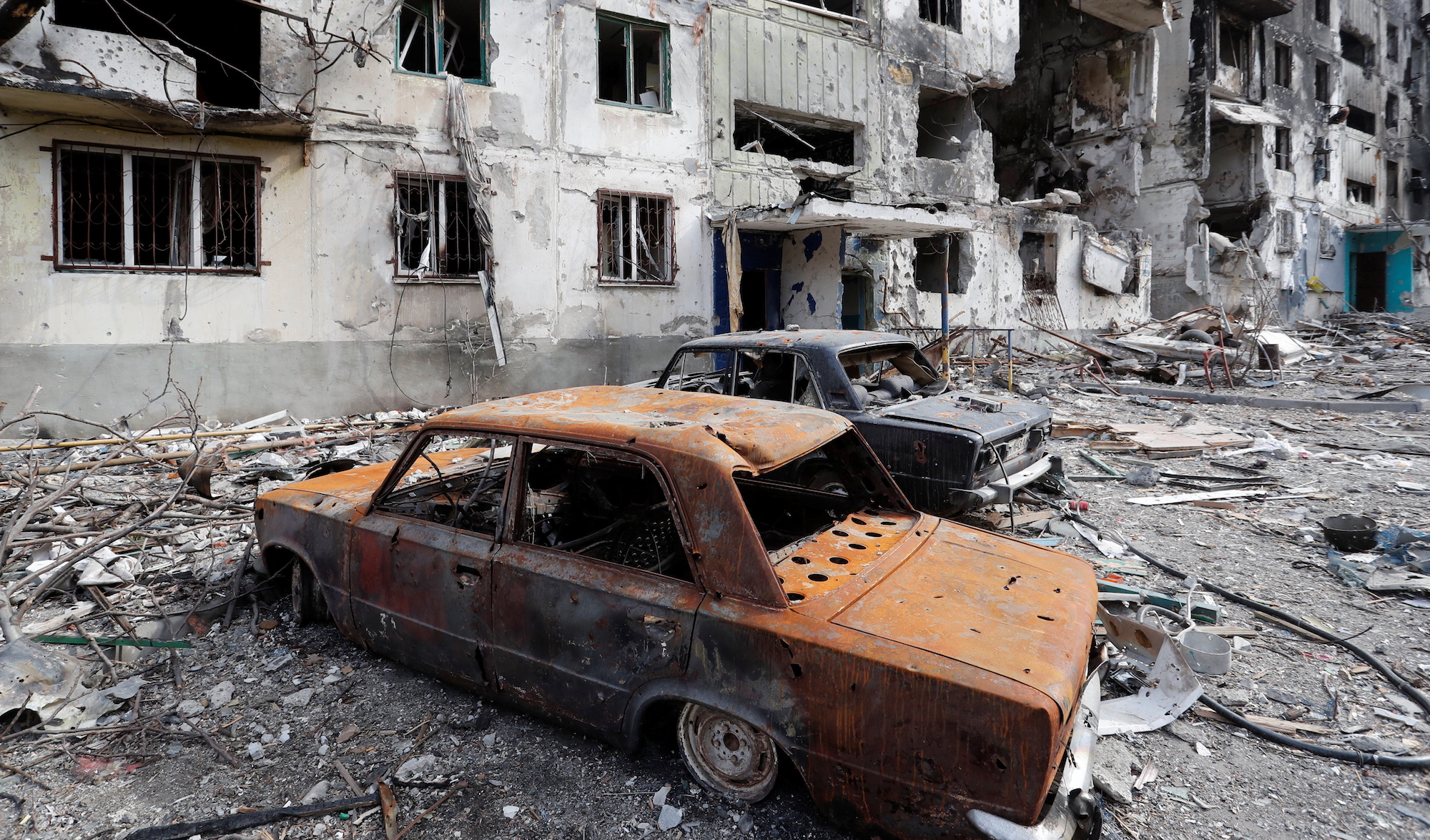
Zelenskyy made the remarks as the Russian armed forces withdrew from the outskirts of Kyiv after trying to occupy the Ukrainian capital in month-long battles and shifting to the disputed territories in eastern Ukraine.
Russia annexed Crimea in 2014, and the conflicts in Donbass between the Ukrainian military and Russia-backed separatists escalated into a war the same year.
Both areas have been de facto occupied by Russia or separatists.
The Kremlin said earlier that the Donbass is the main goal of the full-scale invasion ordered by Russian President Vladimir Putin.
Zelenskyy acknowledged that the intention of Russia’s military operation is to occupy the corridor connecting Crimea and Donbass, with Mariupol being a key city along the corridor.
“Donbass, and the south of Ukraine, and the corridor to Crimea, and the Kherson region, and the Zaporizhzhia region,” he said. “We basically understand what they are doing.”
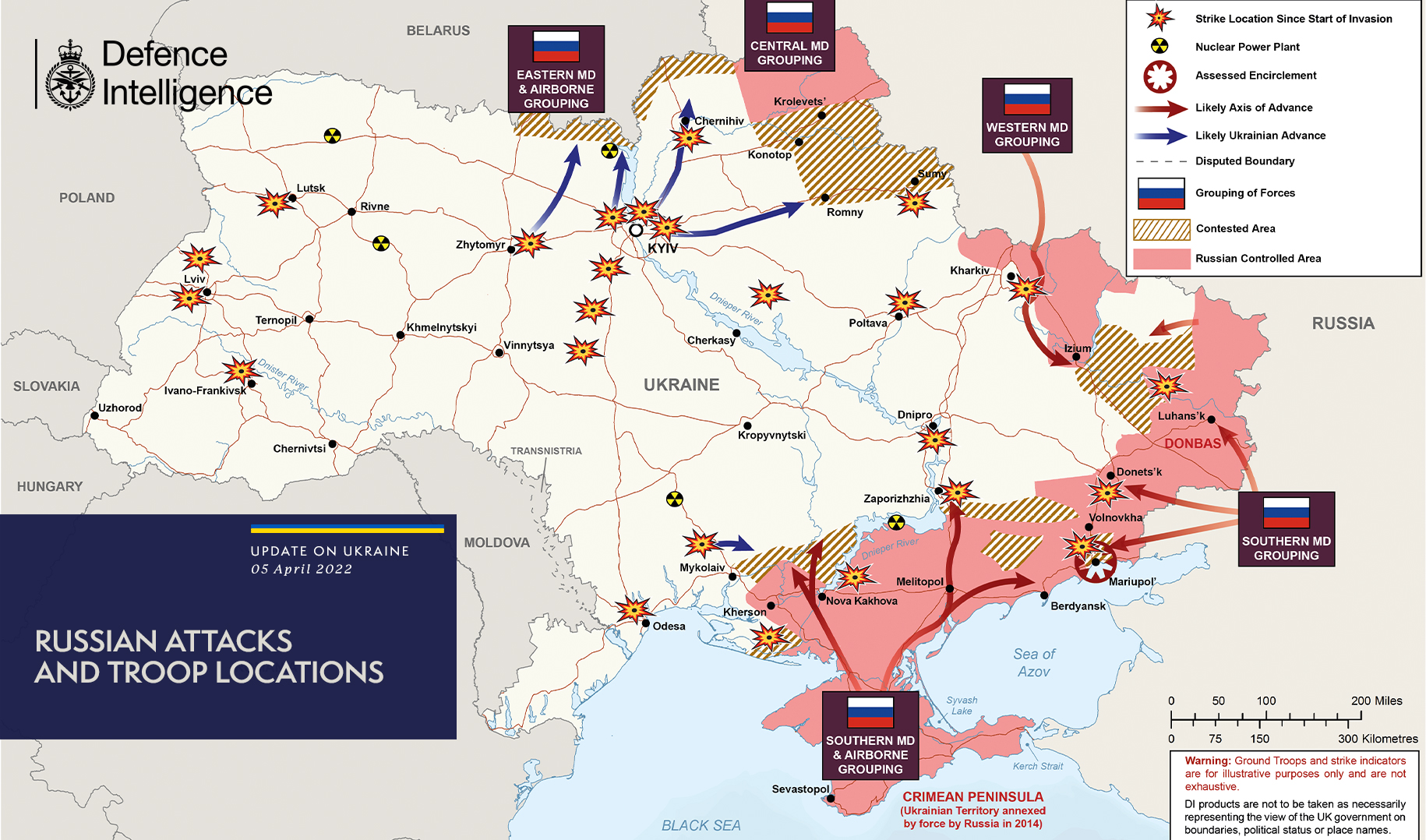
Putin ordered a full-scale invasion of Ukraine on Feb. 24, which the Kremlin called “a special military operation.”
The United Nations said that as of April 4, 1,430 civilians have been killed and 2,097 injured in Ukraine since Russia’s invasion and over 4.2 million people have fled Ukraine.
Zelenskyy’s statement reaffirmed one of the two major concessions from the former Soviet country after the war started.
Ukrainian negotiators proposed a security guarantee mechanism including multiple nations at the end of March in the draft ceasefire deal. Crimea and Donbass are excluded from the proposal.
In another major concession, Ukraine renounced the pursuit of the North Atlantic Treaty Organization membership.

